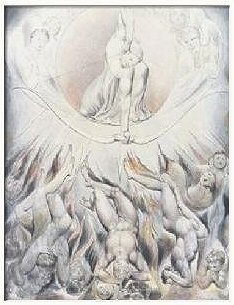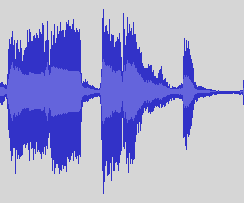Krazy Kaptioning - Part 1: Macy's Parade
[Closed captioning. Ever use it? If you're hearing-impaired, or live with someone who is, you almost certainly have had the experience. It's great, alerting even normally-hearing people to sounds and dialogue that they couldn't otherwise hear. That said, there are still some (mostly amusing) aspects to it. I'm expecting this to be a regular feature here, hence the optimistic "Part 1." We'll see!]
When I was growing up, when my hearing was less of an issue, I loved watching parades on TV. The Macy's Thanksgiving Day parade, of course, but also (because this was in the Greater Philadelphia area) the Mummers' parade, and so on. Marching bands, y'know. Baton twirlers. The smiling faces of the crowd, flushing pink in the cold air and in the excitement and anticipation of whatever the holiday might bring.
Something happened in recent years, though, which has made the parade-watching TV experience very strange. I'm speaking of the Macy's parade in general here, and in particular of the Broadway-number performances that now make up the bulk of the "parade" (even though the performances occur when the performers are not parading, but planted statically in the street outside the department store).
By the time this nouveau tradition set in, my hearing was already at the point where -- unaided -- the sound pretty much reached my ears in this sort of amorphous wall of sound. I could see the pretty girls, and the handsome guys, and also some pretty guys, smiling smiling smiling. But the general effect of the sound was, like:
So last week I'm watching the parade. Or rather, the TV is on in the living room, and I'm making the same pie I've made for 20 years: sour-cream pumpkin, and periodically going through the living room on some feline-related task, or whatever. The sound, however, is not on -- and the closed captions are. And that's when I realize the other big change that's happened in recent years -- namely, the apparent dessication of Broadway song-writing talent.
Yes, yes, I know. The Macy's parade isn't where you should expect to find extremely clever, baroquely interwoven lyrics. But really now.
One of the acts (and God and the families of all these young people please forgive me) in particular made me stop and stare at the lower half of the screen, unable to believe that the captions really said this:
When I was growing up, when my hearing was less of an issue, I loved watching parades on TV. The Macy's Thanksgiving Day parade, of course, but also (because this was in the Greater Philadelphia area) the Mummers' parade, and so on. Marching bands, y'know. Baton twirlers. The smiling faces of the crowd, flushing pink in the cold air and in the excitement and anticipation of whatever the holiday might bring.
Something happened in recent years, though, which has made the parade-watching TV experience very strange. I'm speaking of the Macy's parade in general here, and in particular of the Broadway-number performances that now make up the bulk of the "parade" (even though the performances occur when the performers are not parading, but planted statically in the street outside the department store).
By the time this nouveau tradition set in, my hearing was already at the point where -- unaided -- the sound pretty much reached my ears in this sort of amorphous wall of sound. I could see the pretty girls, and the handsome guys, and also some pretty guys, smiling smiling smiling. But the general effect of the sound was, like:
muted muted mutedand so on.
louder louder louder
HIGH NOTE,
HIGH NOTE,
muted muted muted...
So last week I'm watching the parade. Or rather, the TV is on in the living room, and I'm making the same pie I've made for 20 years: sour-cream pumpkin, and periodically going through the living room on some feline-related task, or whatever. The sound, however, is not on -- and the closed captions are. And that's when I realize the other big change that's happened in recent years -- namely, the apparent dessication of Broadway song-writing talent.
Yes, yes, I know. The Macy's parade isn't where you should expect to find extremely clever, baroquely interwoven lyrics. But really now.
One of the acts (and God and the families of all these young people please forgive me) in particular made me stop and stare at the lower half of the screen, unable to believe that the captions really said this:
We're... making magic!I kid you not. Man, I can't tell you how much I wish I'd turned the sound on, and the captions off, before encountering that clunker of a lyric. Lerner and Loewe must be spinning in their graves.
Making magic!
Making magic!
We're making magic!
Labels: closed captions, music




